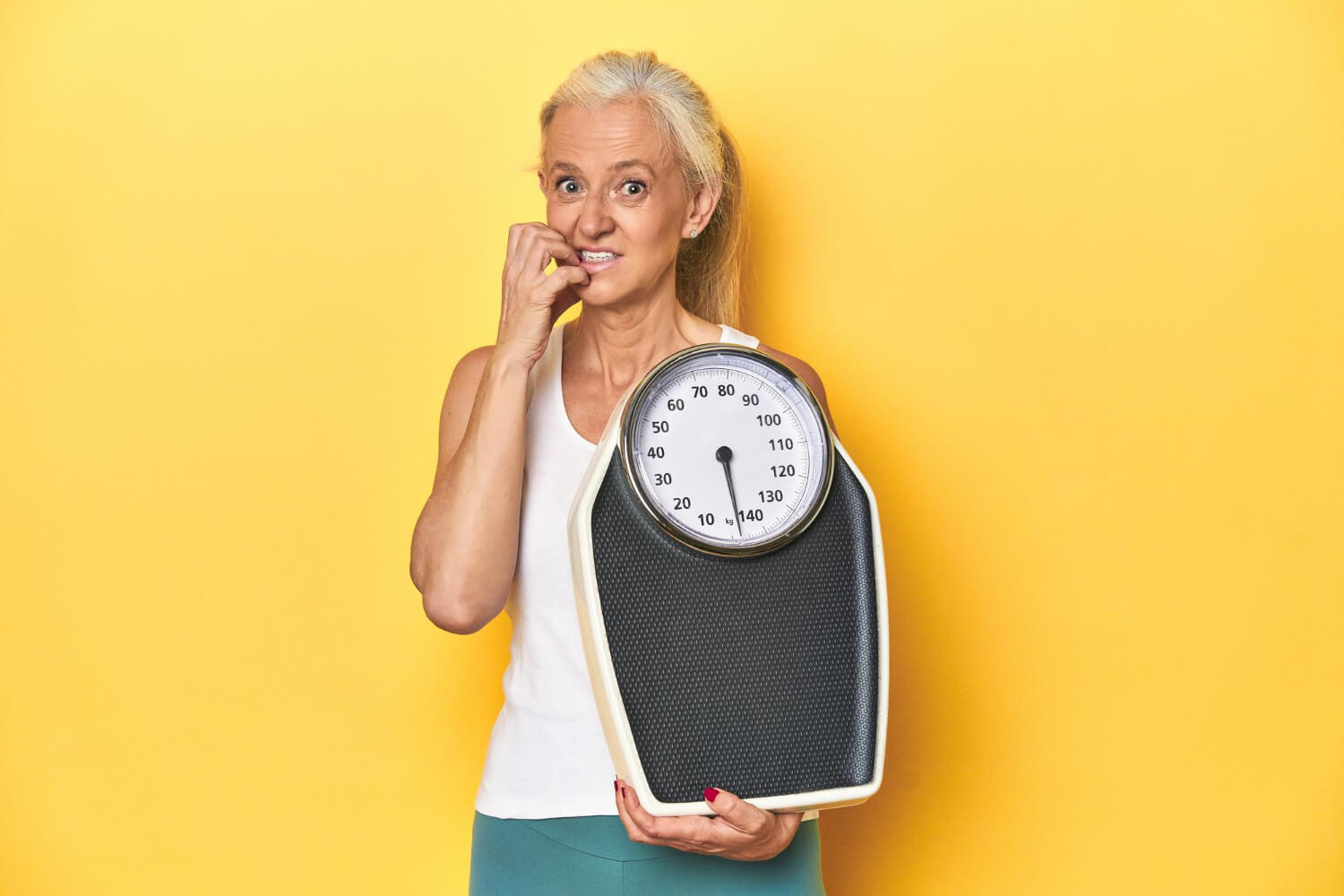Losing weight after 40 can feel like an uphill battle, and it’s easy to fall for myths and misconceptions that can make the journey even more frustrating. As we age, our metabolism slows down, hormones change, and life gets busier, making weight loss seem like a faraway goal. But it’s essential to separate fact from fiction when it comes to shedding pounds in your 40s and beyond.
In this post, we’ll debunk the top 5 myths about weight loss after 40 and provide some science-backed tips to help you feel your best. Remember, it’s never too late to focus on your health, and with the right approach, you can achieve your goals without feeling overwhelmed or discouraged.
Myth #1: Metabolism Drops Drastically After 40, So Weight Loss is Impossible
One of the most persistent myths is that your metabolism grinds to a halt once you hit 40, making weight loss nearly impossible. While it’s true that metabolic rate does decrease with age, it doesn’t plummet overnight. Research shows that, on average, metabolism slows by about 1-2% per decade after the age of 30. This gradual decline is mainly due to a loss of muscle mass, which burns more calories than fat.
The reality? You can boost your metabolism even in your 40s by maintaining or building muscle through strength training. Incorporating resistance exercises like weightlifting, bodyweight exercises, or even yoga can help preserve lean muscle mass, which in turn keeps your metabolism humming. Additionally, regular physical activity and a balanced diet rich in protein can also help support a healthy metabolism.
Takeaway: Don’t let a slow metabolism be an excuse. Focus on strength training and staying active to keep your metabolism working in your favor.
Myth #2: Carbs Are the Enemy
Low-carb diets are often touted as the magic bullet for weight loss, especially as we age. And while it’s true that reducing refined carbs like white bread, pastries, and sugary snacks can benefit weight loss efforts, completely eliminating carbs is not necessary or even healthy.
Carbohydrates are your body’s primary source of energy, and they play a crucial role in overall health, including brain function and muscle recovery. The key is to choose the right kinds of carbs—those that are rich in fiber, like whole grains, fruits, and vegetables.
As we age, our bodies may become more sensitive to blood sugar fluctuations, so opting for complex carbohydrates can help keep blood sugar stable and prevent insulin spikes that can lead to weight gain.
Takeaway: Don’t fear carbs! Focus on consuming nutrient-dense, fiber-rich carbs in moderation, and avoid heavily processed options.
Myth #3: You Have to Eat Less to Lose Weight
Another common misconception is that you need to drastically reduce your calorie intake to lose weight, especially after 40. While it’s true that weight loss is fundamentally about creating a calorie deficit, undereating can actually backfire.
When you drastically cut calories, your body may enter “starvation mode,” where it starts conserving energy and burning fewer calories. This makes it harder to lose weight in the long run and can lead to muscle loss, which further slows metabolism.
Moreover, eating too little can increase cravings for unhealthy foods, leading to binge eating or emotional eating. Instead of focusing on cutting calories, it’s more effective to focus on the quality of your diet. Prioritize whole, nutrient-dense foods like lean proteins, healthy fats, fruits, and vegetables. These foods will keep you fuller for longer, provide the nutrients your body needs to function optimally, and support your weight loss goals.
Takeaway: Don’t starve yourself! Fuel your body with nutrient-rich foods to support weight loss and overall health.
Myth #4: You Can’t Lose Weight Due to Hormonal Changes
Hormonal changes, especially during perimenopause and menopause, can affect weight distribution and make it harder to lose weight. It’s common for women over 40 to notice weight gain around the abdomen due to the decline in estrogen levels, which can lead to fat being stored differently.
However, hormonal changes don’t make weight loss impossible—they just require a more mindful approach. Paying attention to your body’s signals, maintaining regular physical activity, and managing stress are key. Stress management is particularly important because elevated cortisol (the stress hormone) can increase fat storage around the midsection.
Additionally, getting enough sleep is critical, as poor sleep can disrupt hormones like ghrelin and leptin, which regulate hunger and fullness. If you’re struggling with sleep due to hormonal changes, incorporating calming bedtime routines, avoiding caffeine later in the day, and talking to a healthcare professional about managing menopause symptoms can be helpful.
Takeaway: While hormones play a role in weight gain, they don’t have to stop you from losing weight. Manage stress, get enough sleep, and keep moving to stay on track.
Myth #5: You Need to Do Hours of Cardio to Lose Weight
Many people believe that cardio is the best and only way to lose weight, but this isn’t entirely accurate, especially as you age. While cardio exercises like walking, running, or cycling can be beneficial for heart health and calorie burning, they’re not the most effective method for long-term weight loss.
In fact, too much cardio, especially without strength training, can lead to muscle loss, which—as we’ve mentioned—slows down your metabolism. Instead of focusing solely on cardio, aim for a balanced approach that includes strength training, cardio, and flexibility exercises.
Strength training is particularly important after 40 because it helps preserve muscle mass, boost metabolism, and improve bone density, which can reduce the risk of age-related issues like osteoporosis. High-intensity interval training (HIIT) can also be a great option, as it combines short bursts of intense activity with periods of rest, making it more efficient for fat loss than steady-state cardio.
Takeaway: Cardio alone won’t cut it. Combine it with strength training and flexibility exercises for a balanced, effective workout routine.

Realistic Weight Loss Tips After 40
Now that we’ve debunked the most common myths about weight loss after 40, here are a few science-backed tips to help you on your journey:
1. Focus on Consistency, Not Perfection
It’s easy to get caught up in perfectionism, especially when trying to lose weight. But life after 40 can be hectic, with work, family, and other responsibilities taking up your time and energy. Instead of striving for perfection, focus on small, sustainable changes. Consistency is key—whether it’s working out three times a week, meal prepping, or simply making healthier food choices most of the time.
2. Prioritize Protein
Protein is essential for maintaining muscle mass, especially as you age. It also helps keep you fuller for longer, making it easier to control your appetite. Include a source of lean protein, such as chicken, fish, tofu, or legumes, in every meal to support muscle repair and keep your metabolism active.
3. Stay Hydrated
Hydration is often overlooked in weight loss, but it plays a crucial role in overall health. Dehydration can be mistaken for hunger, leading to overeating. Drinking plenty of water throughout the day helps with digestion, reduces bloating, and can even improve your energy levels.
4. Listen to Your Body
As we age, our bodies change, and what worked for weight loss in your 20s or 30s may not work now. Tune into your body’s signals—whether it’s hunger cues, fatigue, or stress—and adjust your approach accordingly. Rest when needed, adjust your workouts if they feel too strenuous, and give yourself grace throughout the process.
5. Manage Stress
Stress can have a significant impact on weight, especially after 40. Elevated cortisol levels due to chronic stress can lead to weight gain, particularly in the abdominal area. Finding ways to manage stress—whether through mindfulness practices, yoga, deep breathing, or simply taking time for yourself—can make a big difference in your weight loss journey.
6. Don’t Skip Meals
Skipping meals, especially breakfast, can lead to overeating later in the day and mess with your blood sugar levels. A balanced meal in the morning with protein, healthy fats, and fiber can kickstart your metabolism and prevent unhealthy snacking throughout the day.
Conclusion
Losing weight after 40 comes with its own set of challenges, but by debunking these myths and focusing on a balanced, holistic approach to health, it’s entirely possible. Remember, weight loss is not just about the number on the scale—it’s about feeling stronger, more energized, and confident in your own skin.
By incorporating strength training, prioritizing whole foods, managing stress, and staying consistent, you can achieve your goals and feel your best at any age. Keep going, and don’t let the myths hold you back—you’ve got this!

